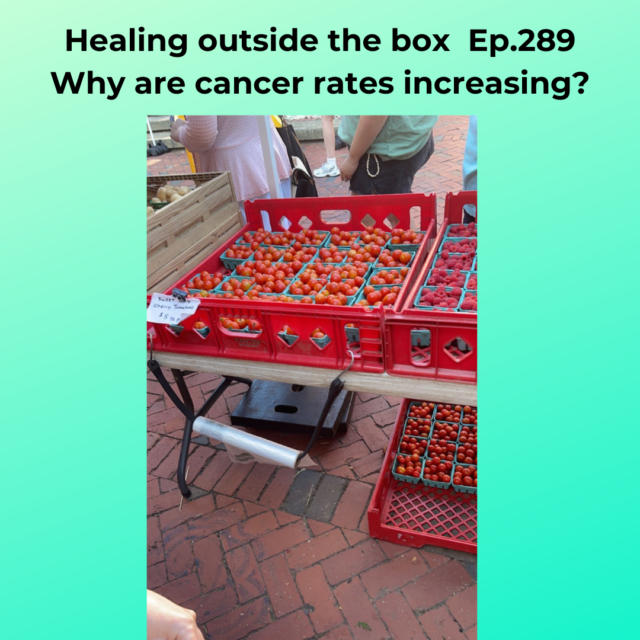
There have been stories in the media recently about cancer rates increasing in younger people in this country. That is also true in England, but not so much in Asian countries (where folks eat less processed meat and more plant-based foods). Among the 14 cancer types on the rise, eight are related to the digestive system.
The recent news is based on a large study that makes the link between changes in our diet since 1990 and cancers of the digestive system. We certainly don’t have any answers for sure, and I am not the go-to expert on this, but it certainly warrants a closer look.
Before I get into the studies, I want to remind everyone that the Healthy Incentives program is happening at farmers markets throughout the country. It’s a federal program that is very successful here in Massachusetts. But if you need advice on how to find out if you’re eligible for $40 of free produce every month, just contact me on my website contact page, at Healing Outside the Box, and I can let you know how to find out if you are eligible in your town.
I also mentioned that my memoir is now out in paperback. It’s called “Helpers Anonymous” and it explores my relationships with my caregivers during the rise in the opioid epidemic. If you decide to get the book on Amazon and would like to contribute a review, I would greatly appreciate it!
There was an article in the Guardian from July that points out the rates of cancer-related to the digestive system as particularly alarming. There has been a 70% increase in the rate of colorectal cancers from 1990 to 2019.
Scientists are now interested in the link between food eaten when we are young and the balance of healthy and pathogenic bacteria in our gut. There was a large review article in Nature, that mentions all of the digestive-related cancers on the rise and suggests that it might be an imbalance in our microbiome. They also looked at epi-genetics and suggested that even small mutations in our genetic material can put us at greater risk of many cancers.
In part two next week, I will look into what the National Institute of Health has to say about all of this. And finally how we can hedge our bets with some tweaking of our dietary habits to lower our risk of all cancers.
